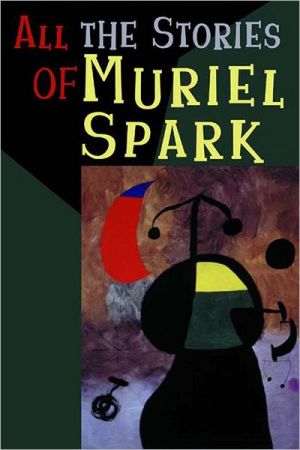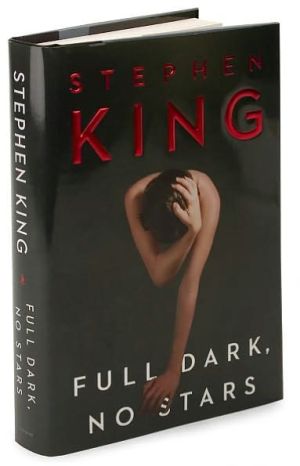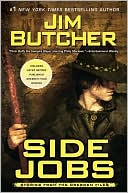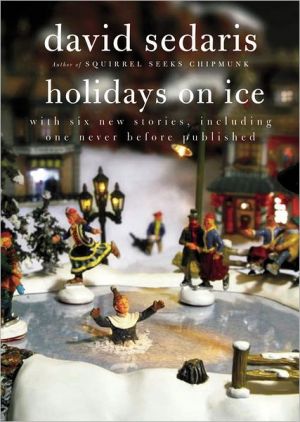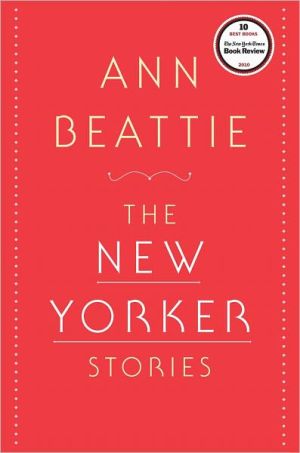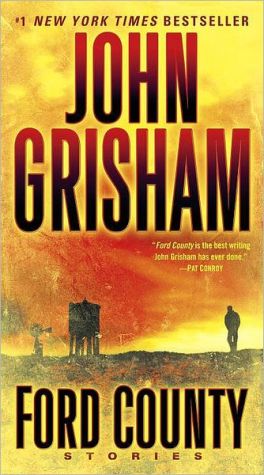All the Stories of Muriel Spark
This new and complete paperback edition now contains every one of her forty-one marvelous stories, catnip for all Spark fans. All the Stories of Muriel Spark spans Dame Muriel Spark's entire career to date and displays all her signature stealth, originality, beauty, elegance, wit, and shock value.No writer commands so exhilarating a style—playful and rigorous, cheerful and venomous, hilariously acute and coolly supernatural. Ranging from South Africa to the West End, her dazzling stories...
Search in google:
Four brand new tales are now added to New Directions' original 1997 cloth edition of Open to the Public.New York Times Book Review[Spark's writing is] likely to go on being read as long as fiction in English is read at all.
\ \ \ \ Chapter One\ \ \ THE PORTOBELLO ROAD\ \ \ One day in my young youth at high summer, lolling with my lovely companions upon a haystack, I found a needle. Already and privately for some years I had been guessing that I was set apart from the common run, but this of the needle attested the fact to my whole public: George, Kathleen and Skinny. I sucked my thumb, for when I had thrust my idle hand deep into the hay, the thumb was where the needle had stuck.\ When everyone had recovered George said, `She put in her thumb and pulled out a plum.' Then away we were into our merciless hacking-hecking laughter again.\ The needle had gone fairly deep into the thumby cushion and a small red river flowed and spread from this tiny puncture. So that nothing of our joy should lag, George put in quickly,\ `Mind your bloody thumb on my shirt.'\ Then hac-hec-hoo, we shrieked into the hot Borderland afternoon. Really I should not care to be so young of heart again. That is my thought every time I turn over my old papers and come across the photograph. Skinny, Kathleen and myself are in the photo atop the haystack. Skinny had just finished analysing the inwards of my find.\ `It couldn't have been done by brains. You haven't much brains but you're a lucky wee thing.'\ Everyone agreed that the needle betokened extraordinary luck. As it was becoming a serious conversation, George said,\ `I'll take a photo.'\ I wrapped my hanky round my thumb and gotmyself organised. George pointed up from his camera and shouted,\ `Look, there's a mouse!'\ Kathleen screamed and I screamed although I think we knew there was no mouse. But this gave us an extra session of squalling hee-hoo's. Finally we three composed ourselves for George's picture. We look lovely and it was a great day at the time, but I would not care for it all over again. From that day I was known as Needle.\ \ \ One Saturday in recent years I was mooching down the Portobello Road, threading among the crowds of marketers on the narrow pavement when I saw a woman. She had a haggard, careworn, wealthy look, thin but for the breasts forced-up high like a pigeon's. I had not seen her for nearly five years. How changed she was! But I recognised Kathleen, my friend; her features had already begun to sink and protrude in the way that mouths and noses do in people destined always to be old for their years. When I had last seen her, nearly five years ago, Kathleen, barely thirty, had said,\ `I've lost all my looks, it's in the family. All the women are handsome as girls, but we go off early, we go brown and nosey.'\ I stood silently among the people, watching. As you will see, I wasn't in a position to speak to Kathleen. I saw her shoving in her avid manner from stall to stall. She was always fond of antique jewellery and of bargains. I wondered that I had not seen her before in the Portobello Road on my Saturday morning ambles. Her long stiff-crooked fingers pounced to select a jade ring from amongst the jumble of brooches and pendants, onyx, moonstone and gold, set out on the stall.\ `What do you think of this?' she said.\ I saw then who was with her. I had been half-conscious of the huge man following several paces behind her, and now I noticed him.\ `It looks all right,' he said. `How much is it?'\ `How much is it?' Kathleen asked the vendor.\ I took a good look at this man accompanying Kathleen. It was her husband. The beard was unfamiliar, but I recognised beneath it his enormous mouth, the bright sensuous lips, the large brown eyes forever brimming with pathos.\ It was not for me to speak to Kathleen, lint I had a sudden inspiration which caused me to say quietly,\ `Hallo, George.'\ The giant of a man turned round to face the direction of my face. There were so many people—but at length he saw me.\ `Hallo, George,' I said again.\ Kathleen had started to haggle with the stall-owner, in her old way, over the price of the jade ring. George continued to stare at me, his big mouth slightly parted so that I could see a wide slit of red lips and white teeth between the fair grassy growths of beard and moustache.\ `My God!' he said.\ `What's the matter?' said Kathleen.\ `Hallo, George!' I said again, quite loud this time, and cheerfully.\ `Look!' said George. `Look who's there, over beside the fruit stall.'\ Kathleen looked but didn't see.\ `Who is it?' she said impatiently.\ `It's Needle,' he said. `She said "Hallo, George".'\ `Needle,' said Kathleen. `Who do you mean? You don't mean our old friend Needle who—'\ `Yes. There she is. My God!'\ He looked very ill, although when I had said `Hallo, George' I had spoken friendly enough.\ `I don't see anyone faintly resembling poor Needle,' said Kathleen looking at him. She was worried.\ George pointed straight at me. `Look there. I tell you that is Needle.'\ `You're ill, George. Heavens, you must be seeing things. Come on home. Needle isn't there. You know as well as I do, Needle is dead.'\ I must explain that I departed this life nearly five years ago. But I did not altogether depart this world. There were those odd things still to be done which one's executors can never do properly. Papers to be looked over, even after the executors have torn them up. Lots of business except, of course, on Sundays and Holidays of Obligation, plenty to take an interest in for the time being. I take my recreation on Saturday mornings. If it is a wet Saturday I wander up and down the substantial lanes of Woolworth's as I did when I was young and visible. There is a pleasurable spread of objects on the counters which I now perceive and exploit with a certain detachment, since it suits with my condition of life. Creams, toothpastes, combs and hankies, cotton gloves, flimsy flowering scarves, writing-paper and crayons, ice-cream cones and orangeade, screwdrivers, boxes of tacks, tins of paint, of glue, of marmalade; I always liked them but far more now that I have no need of any. When Saturdays are fine I go instead to the Portobello Road where formerly I would jaunt with Kathleen in our grown-up days. The barrow-loads do not change much, of apples and rayon vests in common blues and low-taste mauve, of silver plate, trays and teapots long since changed hands from the bygone citizens to dealers, from shops to the new flats and breakable homes, and then over to the barrow-stalls and the dealers again: Georgian spoons, rings, ear-rings of turquoise and opal set in the butterfly pattern of true-lovers' knot, patch-boxes with miniature paintings of ladies on ivory, snuff-boxes of silver with Scotch pebbles inset.\ Sometimes as occasion arises on a Saturday morning, my friend Kathleen, who is a Catholic, has a Mass said for my soul, and then I am in attendance, as it were, at the church. But most Saturdays I take my delight among the solemn crowds with their aimless purposes, their eternal life not far away, who push past the counters and stalls, who handle, buy, steal, touch, desire and ogle the merchandise. I hear the tinkling tills, I hear the jangle of loose change and tongues and children wanting to hold and have.\ That is how I came to be in the Portobello Road that Saturday morning when I saw George and Kathleen. I would not have spoken had I not been inspired to it. Indeed it's one of the things I can't do now—to speak out, unless inspired. And most extraordinary, on that morning as I spoke, a degree of visibility set in. I suppose from poor George's point of view it was like seeing a ghost when he saw me standing by the fruit barrow repeating in so friendly a manner, `Hallo, George!'\ \ \ We were bound for the south. When our education, what we could get of it from the north, was thought to be finished, one by one we were sent or sent for to London. John Skinner, whom we called Skinny, went to study more archaeology, George to join his uncle's tobacco farm, Kathleen to stay with her rich connections and to potter intermittently in the Mayfair hat shop which one of them owned. A little later I also went to London to see life, for it was my ambition to write about life, which first I had to see.\ `We four must stick together,' George said very often in that yearning way of his. He was always desperately afraid of neglect. We four looked likely to shift off in different directions and George did not trust the other three of us not to forget all about him. More and more as the time came for him to depart for his uncle's tobacco farm in Africa he said,\ `We four must keep in touch.'\ And before he left he told each of us anxiously,\ `I'll write regularly, once a month. We must keep together for the sake of the old times.' He had three prints taken from the negative of that photo on the haystack, wrote on the back of them `George took this the day that Needle found the needle' and gave us a copy each. I think we all wished he could become a bit more callous.\ During my lifetime I was a drifter, nothing organised. It was difficult for my friends to follow the logic of my life. By the normal reckonings I should have come to starvation, and ruin, which I never did. Of course, I did not live to write about life as I wanted to do. Possibly that is why I am inspired to do so now in these peculiar circumstances.\ I taught in a private school in Kensington for almost three months, very small children. I didn't know what to do with them but I was kept fairly busy escorting incontinent little boys to the lavatory and telling the little girls to use their handkerchiefs. After that I lived a winter holiday in London on my small capital, and when that had run out I found a diamond bracelet in the cinema for which I received a reward of fifty pounds. When it was used up I got a job with a publicity man, writing speeches for absorbed industrialists, in which the dictionary of quotations came in very useful. So it went on. I got engaged to Skinny, but shortly after that I was left a small legacy, enough to keep me for six months. This somehow decided me that I didn't love Skinny so I gave him back the ring.\ But it was through Skinny that I went to Africa. He was engaged with a party of researchers to investigate King Solomon's mines, that series of ancient workings ranging from the ancient port of Ophir, now called Beira, across Portuguese East Africa and Southern Rhodesia to the mighty jungle-city of Zimbabwe whose temple walls still stand by the approach to an ancient and sacred mountain, where the rubble of that civilisation scatters itself over the surrounding Rhodesian waste. I accompanied the party as a sort of secretary. Skinny vouched for me, he paid my fare, he sympathised by his action with my inconsequential life although when he spoke of it he disapproved. A life like mine annoys most people; they go to their jobs every day, attend to things, give orders, pummel typewriters, and get two or three weeks off every year, and it vexes them to see someone else not bothering to do these things and yet getting away with it, not starving, being lucky as they call it. Skinny, when I had broken off our engagement, lectured me about this, but still he took me to Africa knowing I should probably leave his unit within a few months.\ We were there a few weeks before we began enquiring for George, who was farming about four hundred miles away to the north. We had not told him of our plans.\ `If we tell George to expect us in his part of the world he'll come rushing to pester us the first week. After all, we're going on business,' Skinny had said.\ Before we left Kathleen told us, `Give George my love and tell him not to send frantic cables every time I don't answer his letters right away. Tell him I'm busy in the hat shop and being presented. You would think he hadn't another friend in the world the way he carries on.'\ We had settled first at Fort Victoria, our nearest place of access to the Zimbabwe ruins. There we made enquiries about George. It was clear he hadn't many friends. The older settlers were the most tolerant about the half-caste woman he was living with, as we found, but they were furious about his methods of raising tobacco which we learned were most unprofessional and in some mysterious way disloyal to the whites. We could never discover how it was that George's style of tobacco farming gave the blacks opinions about themselves, but that's what the older settlers claimed. The newer immigrants thought he was unsociable and, of course, his living with that nig made visiting impossible.\ I must say I was myself a bit off-put by this news about the brown woman. I was brought up in a university town to which came Indian, African and Asiatic students in a variety of tints and hues. I was brought up to avoid them for reasons connected with local reputation and God's ordinances. You cannot easily go against what you were brought up to do unless you are a rebel by nature.\ Anyhow, we visited George eventually, taking advantage of the offer of transport from some people bound north in search of game. He had heard of our arrival in Rhodesia and though he was glad, almost relieved, to see us he pursued a policy of sullenness for the first hour.\ `We wanted to give you a surprise, George.'\ `How were we to know that you'd get to hear of our arrival, George? News here must travel faster than light, George.'\ `We did hope to give you a surprise, George.'\ At last he said, `Well, I must say it's good to see you. All we need now is Kathleen. We four simply must stick together. You find when you're in a place like this, there's nothing like old friends.'\ He showed us his drying sheds. He showed us a paddock where he was experimenting with a horse and a zebra mare, attempting to mate them. They were frolicking happily, but not together. They passed each other in their private play time and again, but without acknowledgment and without resentment.\ `It's been done before,' George said. `It makes a fine strong beast, more intelligent than a mule and sturdier than a horse. But I'm not having any success with this pair, they won't look at each other.'\ After a while, he said, `Come in for a drink and meet Matilda.'\ She was dark brown, with a subservient hollow chest and round shoulders, a gawky woman, very snappy with the house-boys. We said pleasant things as we drank on the stoep before dinner, but we found George difficult. For some reason he began to rail at me for breaking off my engagement to Skinny, saying what a dirty trick it was after all those good times in the old days. I diverted attention to Matilda. I supposed, I said, she knew this part of the country well?\ `No,' said she, `I been a-shellitered my life. I not put out to working. Me nothing to go from place to place is allowed like dirty girls does.' In her speech she gave every syllable equal stress.\ George explained, `Her father was a white magistrate in Natal. She had a sheltered upbringing, different from the other coloureds, you realise.'\ `Man, me no black-eyed Susan,' said Matilda, `no, no.'\ On the whole, George treated her as a servant. She was about four months advanced in pregnancy, but he made her get up and fetch for him, many times. Soap: that was one of the things Matilda had to fetch. George made his own bath soap, showed it proudly, gave us the recipe which I did not trouble to remember; I was fond of nice soaps during my lifetime and George's smelt of brilliantine and looked likely to soil one's skin.\ `D'yo brahn?' Matilda asked me.\ George said, `She is asking if you go brown in the sun.'\ `No, I go freckled.'\ `I got sister-in-law go freckles.'\ She never spoke another word to Skinny nor to me, and we never saw her again.\ \ \ Some months later I said to Skinny,\ `I'm fed up with being a camp-follower.'\ He was not surprised that I was leaving his unit, but he hated my way of expressing it. He gave me a Presbyterian look.\ `Don't talk like that. Are you going back to England or staying?'\ `Staying, for a while.'\ `Well, don't wander too far off.'\ I was able to live on the fee I got for writing a gossip column in a local weekly, which wasn't my idea of writing about life, of course. I made friends, more than I could cope with, after I left Skinny's exclusive little band of archaeologists. I had the attractions of being newly out from England and of wanting to see life. Of the countless young men and go-ahead families who purred me along the Rhodesian roads, hundred after hundred miles, I only kept up with one family when I returned to my native land. I think that was because they were the most representative, they stood for all the rest: people in those parts are very typical of each other, as one group of standing stones in that wilderness is like the next.\ I met George once more in a hotel in Bulawayo. We drank highballs and spoke of war. Skinny's party were just then deciding whether to remain in the country or return home. They had reached an exciting part of their research, and whenever I got a chance to visit Zimbabwe he would take me for a moonlight walk in the ruined temple and try to make me see phantom Phoenicians flitting ahead of us, or along the walls. I had half a mind to marry Skinny; perhaps, I thought, when his studies were finished. The impending war was in our bones: so I remarked to George as we sat drinking highballs on the hotel stoep in the hard bright sunny July winter of that year.\ George was inquisitive about my relations with Skinny. He tried to pump me for about half an hour and when at last I said, `You are becoming aggressive, George,' he stopped. He became quite pathetic. He said, `War or no war I'm clearing out of this.'\ `It's the heat does it,' I said.\ `I'm clearing out in any case. I've lost a fortune in tobacco. My uncle is making a fuss. It's the other bloody planters; once you get the wrong side of them you're finished in this wide land.'\ `What about Matilda?' I asked.\ He said, `She'll be all right. She's got hundreds of relatives.'\ I had already heard about the baby girl. Coal black, by repute, with George's features. And another on the way, they said.\ `What about the child?'\ He didn't say anything to that. He ordered more highballs and when they arrived he swizzled his for a long time with a stick. `Why didn't you ask me to your twenty-first?' he said then.\ `I didn't have anything special, no party, George. We had a quiet drink among ourselves, George, just Skinny and the old professors and two of the wives and me, George.'\ `You didn't ask me to your twenty-first,' he said. `Kathleen writes to me regularly.'\ This wasn't true. Kathleen sent me letters fairly often in which she said, `Don't tell George I wrote to you as he will be expecting word from me and I can't be bothered actually.'\ `But you,' said George, `don't seem to have any sense of old friendships, you and Skinny.'\ `Oh, George!' I said.\ `Remember the times we had,' George said. `We used to have times.' His large brown eyes began to water.\ `I'll have to be getting along,' I said.\ `Please don't go. Don't leave me just yet. I've something to tell you.'\ `Something nice?' I laid on an eager smile. All responses to George had to be overdone.\ `You don't know how lucky you are,' George said.\ `How?' I said. Sometimes I got tired of being called lucky by everybody. There were times when, privately practising my writings about life, I knew the bitter side of my fortune. When I failed again and again to reproduce life in some satisfactory and perfect form, I was the more imprisoned, for all my carefree living, within my craving for this satisfaction. Sometimes, in my impotence and need I secreted a venom which infected all my life for days on end and which spurted out indiscriminately on Skinny or on anyone who crossed my path.\ `You aren't bound by anyone,' George said. `You come and go as you please. Something always turns up for you. You're free, and you don't know your luck.'\ `You're a damn sight more free than I am,' I said sharply. `You've got your rich uncle.'\ `He's losing interest in me,' George said. `He's had enough.'\ `Oh well, you're young yet. What was it you wanted to tell me?'\ `A secret,' George said. `Remember we used to have those secrets.'\ `Oh, yes we did.'\ `Did you ever tell any of mine?'\ `Oh no, George.' In reality, I couldn't remember any particular secret out of the dozens we must have exchanged from our schooldays onwards.\ `Well, this is a secret, mind. Promise not to tell.'\ `Promise.'\ `I'm married.'\ `Married, George! Oh, who to?'\ `Matilda.'\ `How dreadful!' I spoke before I could think, but he agreed with me.\ `Yes, it's awful, but what could I do?'\ `You might have asked my advice,' I said pompously.\ `I'm two years older than you are. I don't ask advice from you, Needle, little beast.'\ `Don't ask for sympathy then.'\ `A nice friend you are,' he said, `I must say after all these years.'\ `Poor George!' I said.\ `There are three white men to one white woman in this country,' said George. `An isolated planter doesn't see a white woman and if he sees one she doesn't see him. What could I do? I needed the woman.'\ I was nearly sick. One, because of my Scottish upbringing. Two, because of my horror of corny phrases like `I needed the woman', which George repeated twice again.\ `And Matilda got tough,' said George, `after you and Skinny came to visit us. She had some friends at the Mission, and she packed up and went to them.'\ `You should have let her go,' I said.\ (Continues...)\ \ \ Excerpted from All the Stories of Muriel Spark by Muriel Spark. Copyright © 1953-2000 by Muriel Spark. Excerpted by permission.
Foreword: The Story of My StoriesThe Portobello Road1The Curtain Blown by the Breeze21The Black Madonna34Bang-Bang You're Dead52The Seraph and the Zambesi77The Twins85The Playhouse Called Remarkable94The Pawnbroker's Wife104Miss Pinkerton's Apocalypse115'A Sad Tale's Best for Winter'121The Leaf-Sweeper127Daisy Overend133You Should Have Seen the Mess141Come Along, Marjorie147The Ormolu Clock158The Dark Glasses167A Member of the Family180The House of the Famous Poet192The Fathers' Daughters200Open to the Public211Alice Long's Dachshunds222The Go-Away Bird232The First Year of My Life274The Gentile Jewesses281The Executor288The Fortune-Teller296Another Pair of Hands306The Dragon316The Girl I Left Behind Me326Going Up and Coming Down330The Pearly Shadow334Chimes340The Thing About Police Stations346Harper and Wilton350Ladies and Gentlemen357Quest for Lavishes Ghast365The Hanging Judge370The Snobs377The Young Man Who Discovered the Secret of Life384Christmas Fugue387A Hundred and Eleven Years without a Chauffeur394
\ Belles LettresThat Spark is one of the most important voices in 20th-century British literature has, quite correctly, become an accepted truth.\ \ \ \ \ Georgia ReviewTo read Spark is to encounter delight after delight.\ \ \ New York Times Book Review[Spark's writing is] likely to go on being read as long as fiction in English is read at all.\ \ \ \ \ Patricia CraigDullness is as as foreign to her as inelegance. —The New Statesman\ \ \ \ \ Times Literary SupplementMuriel Spark has shown herself, consistently, to be an endlessly resourceful, idiosyncratic, and uncompromising author.\ \ \ \ \ Publishers WeeklyComing just four years after the cloth edition of Open to the Public: New and Collected Stories, which introduced readers to 10 new Spark tales, this collection tacks on four slight additions and brings the total of Spark's stories to 41. The new entries are brief variations on familiar Stark themes: social standing is comically depicted in "The Snobs," the ownership of family history is probed through photographs in "A Hundred and Eleven Years Without a Chauffeur" and benign ghostly experiences account for the remaining two stories. Taken together, they're not a major inducement for owners of the 1997 collection to indulge again so soon. Those who know Spark mainly from her novels, however (The Prime of Miss Jean Brodie; Loitering with Intent), will be pleased to snap up this treasure trove, markedly best for the many of her earlier stories that combine elements that other writers wouldn't dare bring together. Chance encounters between strangers spiral into unexpected plots (as when a young woman meets a soldier on a train in "The House of the Famous Poet"), and Spark's narrators (including the wry, level-headed ghost of "The Portobello Road") serve as astute observers of race, class and society, particularly in the stories set in colonial South Africa. There are times when the whimsy goes screwball, and briefer pieces stemming from a word or phrase peter out, but overall Spark's marvelous control of ambiguities and language continues to dazzle. (Nov. 29) Forecast: Following so soon on the heels of Open to the Public, this volume may not receive much review coverage, but as the first paperback collected edition since 1985, it should sell well, particularly to students and first-timeSpark readers. Copyright 2001 Cahners Business Information.\ \
